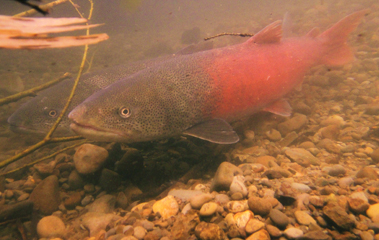Sustainable Business Model
Resource Circulation Throughout the Value Chain
By deploying this model globally, we are working to enable our businesses to help build a sustainable society.
Initiatives for Sustainable Forest Management (Forest Recycling)
Since the 1910s, Oji Group has valued the sustainability of forest resources. We have managed sustainable forests and positioned forest resources at the core of our sustainable business model. We own and manage forest plantations not only in Japan but also in ten regions of six countries outside of Japan. Specifically, we own ~446k ha of production forests, which are mainly for producing wood in consideration of environmental conservation and ~129k ha of environmentally conserved forests, which are primarily for protecting biodiversity and basins. The total area of these forests is ~575k ha. In addition, we participate in forest certification programs* to manage forests appropriately for the environment, economy, and society.
At the end of FY2021, 91% of overseas forest plantations and 100% of company-owned forests in Japan are certified (the achievement rate: 95%).
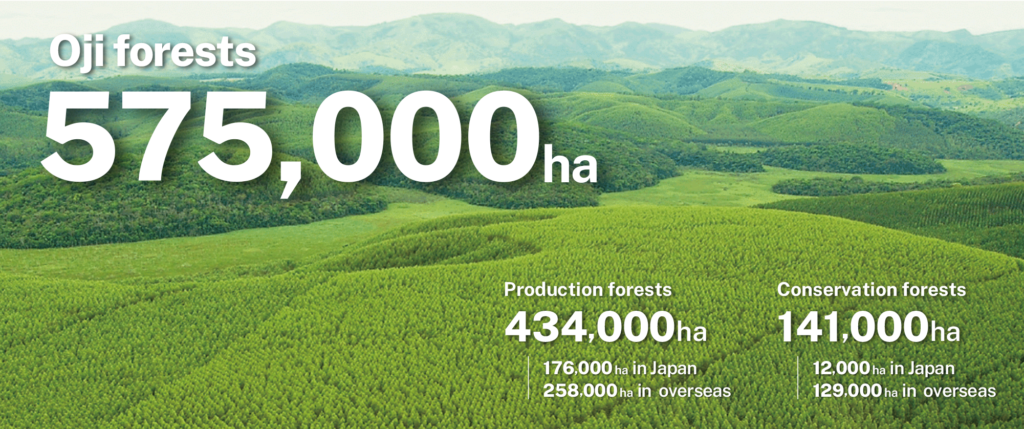
Overview of the Overseas Forest Plantation Business
Our forest plantations in Brazil operate on a rotating basis, harvesting eucalyptus around every seven years.
Overview of Company-Owned Forests in Japan
Water Recycling
Reduction of Water Consumption and Water Recycling
At paper mills, we maintain a recycling rate of 93%, using water without waste through water cascades for water intake and recycling.
For paper manufacturing, we also recover the raw materials (fine fibers, etc.) from the water used to dilute pulp and reuse them.
Paper Recycling
Various Efforts to Promote the Use of Recovered Paper
Approximately 60 percent of the raw material used for these types of paper is recovered paper, and the remaining 40 percent comes from trees.
Oji Group is working on “paper recycles” for the purpose of sustainable use of resources and contribution to the environment.
Recovered Paper Use Results
In addition, recovered paper utilization ratio* in FY2020 was 68.5%, an increase of 6.1 points in the past 10 years as a result of various efforts to use recovered paper as a resource.
Initiatives for Paper Recycling at Overseas Business Locations
Activities to Promote Recovered Paper Recycling in Malaysia
Most were collected through domestic recovered paper franchise (recovered paper collecting and sorting bases) in alliance with GSPP, and the volume accounted for 15% of all recovered paper collected in Malaysia. GSPP is currently carrying out works to increase corrugated containerboard production capacity.
Once this new capacity comes on line, GSPP is planning to increase imports of recovered paper, including Japan.
GSPP is working to improve the quality of recovered paper in Malaysia, mainly with its domestic recovered paper franchise. Moreover, GSPP is conducting awareness campaign targeting general public to further promote recovered paper recycling.
Photograph on the right below shows the sorting bins donated to welfare facilities by GSPP in conjunction with the Embassy of Japan in Malaysia. Bins are designed to raise awareness of recycling by enabling separate disposal of paper, plastics and cloth.
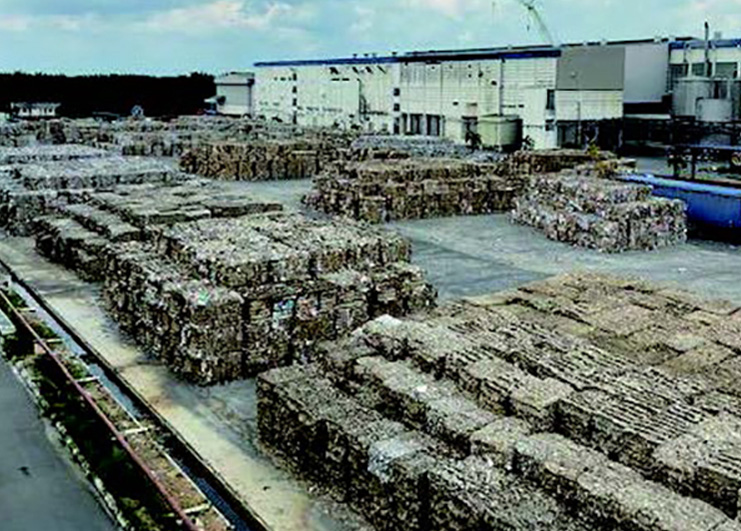
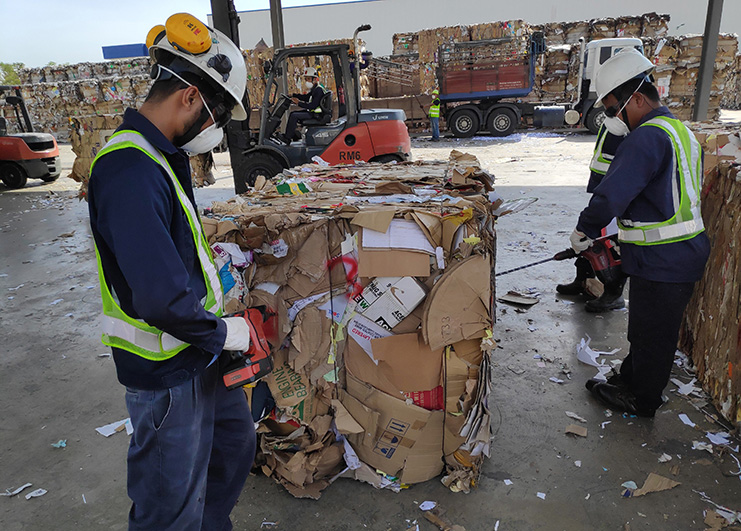
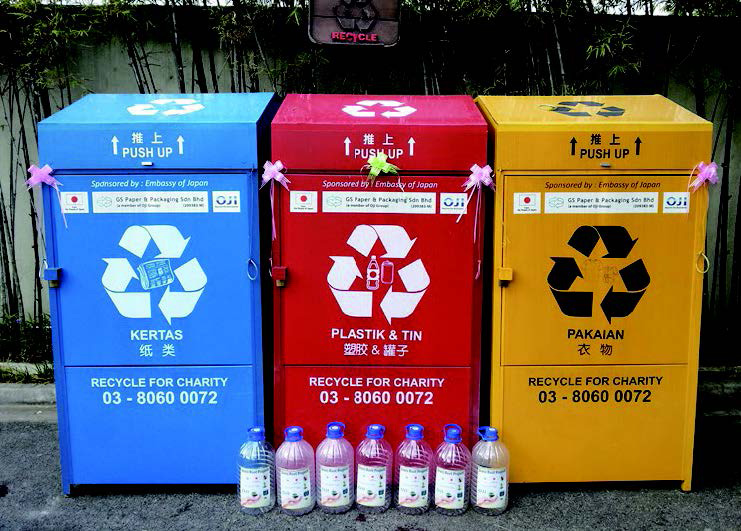
Use of Recovered Paper in New Zealand
For this reason, it is essential to build a system for collecting only recovered paper in order to efficiently collect high-quality recovered paper with low contamination.
Oji Fibre Solutions (Oji FS) is the New Zealand’s largest user of recovered paper and the only containerboard manufacturer in the country.
For our own recovered paper collection business, Oji FS boasts the fact that the amount of recovered paper collected exceeds not only the company’s own consumption but also total domestic consumption.
With 13 baling sites (to compress and pack recovered paper into large cubes weighing about 1 ton each), Oji FS collected about 243,000 tons of recovered paper in 2020. As Oji FS has a track record of using approximately 185,000 tons of recovered paper, the surplus exceeding its own consumption is exported overseas, mostly to Oji Group company GSPP (Malaysia).
Since Oji FS efforts are directly linked to the improvement of the national recovered paper recycling rate, the company is actively engaged in activities to improve recovered paper collection and the recovered paper utilization rate, such as considering a nation-wide collection system together with the government and developing paperboard products with an increased recovered paper content.
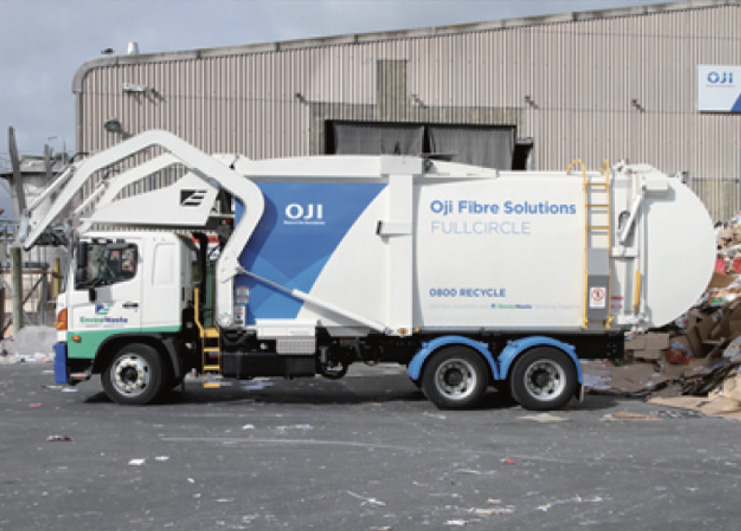
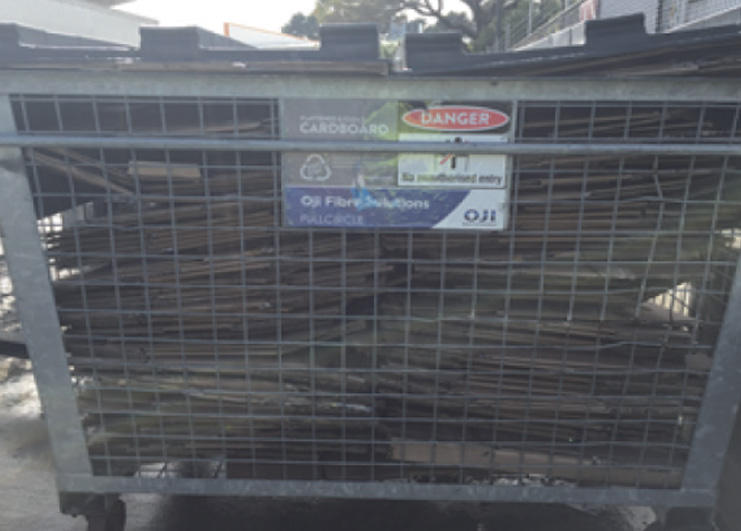
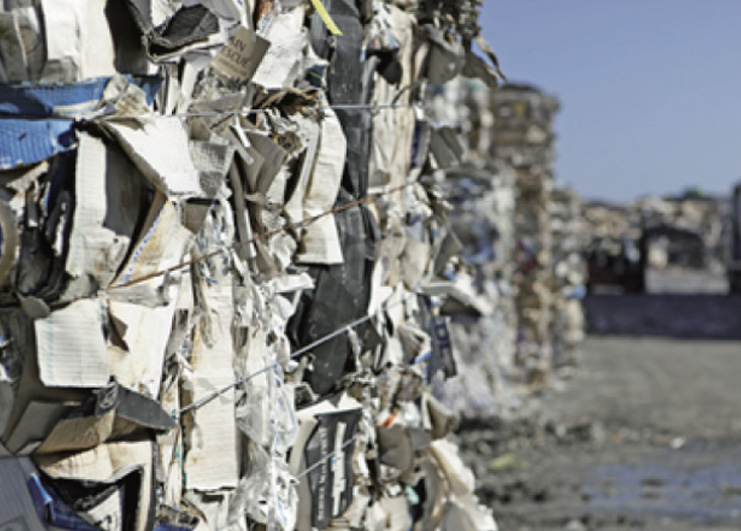
Approach to the SDGs
We also work to respect human rights, ensure safety and health in the workplace and promote diversity.
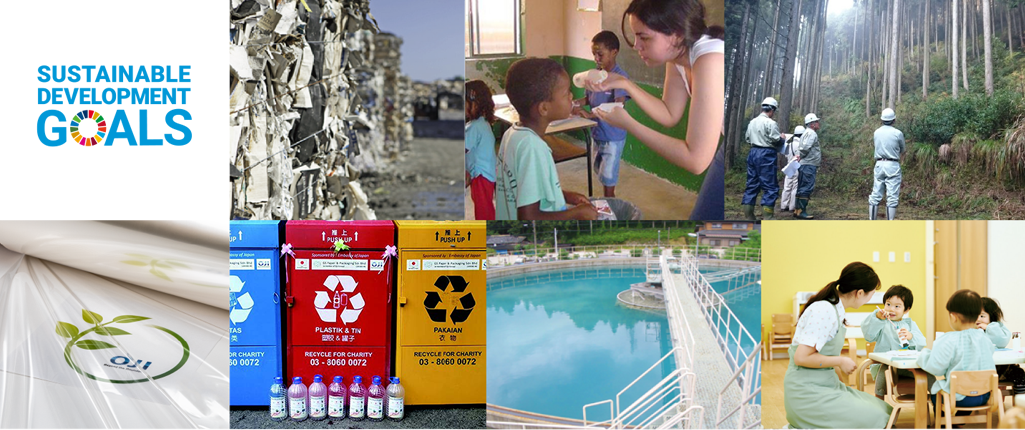
Initiatives for Conservation of Biodiversity
Sustainable forest management requires a mutual understanding between forest plantation business operators and the local community.
Conservation Activity (New Zealand / Brazil/ Japan)


